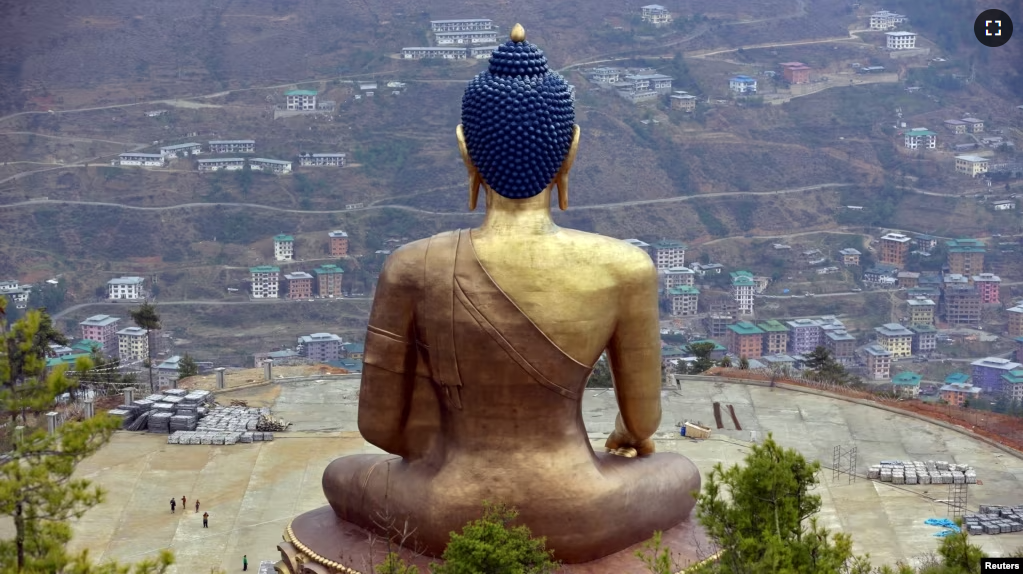Young people are leaving Bhutan as Australia has reopened its borders to international students after the pandemic. Young people from Bhutan are seeking opportunities outside the country as more are becoming unhappy with the South Asian kingdom’s economy.
The number of students arriving in Australia from Bhutan has increased sharply. Over 12,000 arrived during the 11 months ending in May. That number represents about 1.5 percent of the small South Asian country’s population. The country has a youth unemployment rate above 25 percent.
Most of the recent arrivals have settled in Perth, Western Australia. They are taking classes in fields like childcare, hospitality, and accounting.
Tashi Kipchu is 25 years old. He is one of many who came to Australia last year in search of better opportunities.
“Right after COVID, everything died,” said Kipchu, who studied marketing at the University of Western Australia. He said he did not see any opportunities at home.
Bhutanese students did not start going to Australia until 2017. The number sharply increased after Australia reopened its borders in 2022. Australian government data shows that the number of Bhutanese students asking for visas increased by five times in the financial year ending in June.
The increase of student arrivals has made Australia home to one of the largest Bhutanese communities outside of South Asia.
Bhutanese students represent just a small part of Australia’s 600,000 international student population. But the increase of students comes as the $27 billion education industry in Australia tries to make up lost ground from the decrease during the pandemic. Students from China, for example, are returning at a slower rate than Australian officials had hoped.
Phil Honeywood is Chief Executive Officer at International Education Association of Australia. He said Australian universities want to diversify. Honeywood said they got the message from the former and current government that they should not depend too much on China, India, and Nepal.
Sonam Tobgay is Bhutan’s ambassador to Australia. He said students want to go to Australia for a less costly education and visas that permit students’ dependents to work for unlimited hours.
Bhutan’s mostly closed economy is dependent on hydropower and tourism. Its economy has more recently been hurt by high energy costs and limited trade.
Government reforms have added to the number of working professionals leaving.
Found between India and China, Bhutan reopened its borders last September. But higher taxes on tourism have slowed the country’s recovery. Youth unemployment hit 28 percent last year.
Bhutan might be most famous for its Gross National Happiness index. It is a measure of citizens’ happiness rather than the country’s wealth.
Kipchu trained as a chemical engineer in Bhutan. But he saw a business opportunity soon after arriving in Perth and started an education consultancy to help students from Bhutan. Now, his company employs 40 to 50 people in his home country.
“I came to Australia to study but somehow this country gave me an opportunity,” said Kipchu. He predicted that the increase of people moving to Australia would continue.
“The job opportunities and the flexibility for students to work here makes it more attractive.”
I’m Caty Weaver. And I’m Gregory Stachel.
Stella Qiu and Gopal Sharma reported this story for Reuters. Gregory Stachel adapted it for VOA Learning English.
________________________________________________
Words in This Story
hospitality –n. (business) the term to describe the industry of providing hotels, restaurants and places of interest for travelers
opportunity – n. an amount of time or a situation in which something can be don
diversify – v. to change (something) so that it has more different kinds of people or things
tourism – n. the activity of traveling to a place for pleasure
consultancy – n. a company that gives professional advice to other companies for a fee
flexibility – adj. able to change or to do different things
attractive – adj. having a feature or quality that people like
